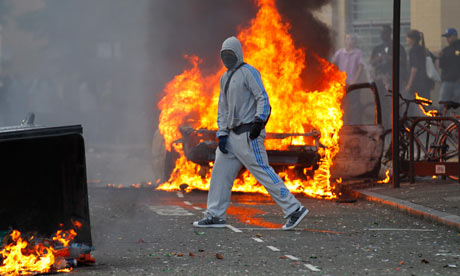 |
| Photograph: Kerim Okten/EPA |
My job was to take a group of up to 15 young people (aged 16 – 25) and help them to turn their lives around. These were young people who had fallen through society’s ‘net’. I worked with drug addicts, prison leavers and pregnant teenage girls. I was alone with this group of 15. There was no funding for the assistant that I was supposed to have.When I moved out of London seven years ago, I worked for one year as a youth worker in Watford (a large town in the suburbs of London), and what I learnt in that year astounded me…
I could tell you some horror stories. But not now.